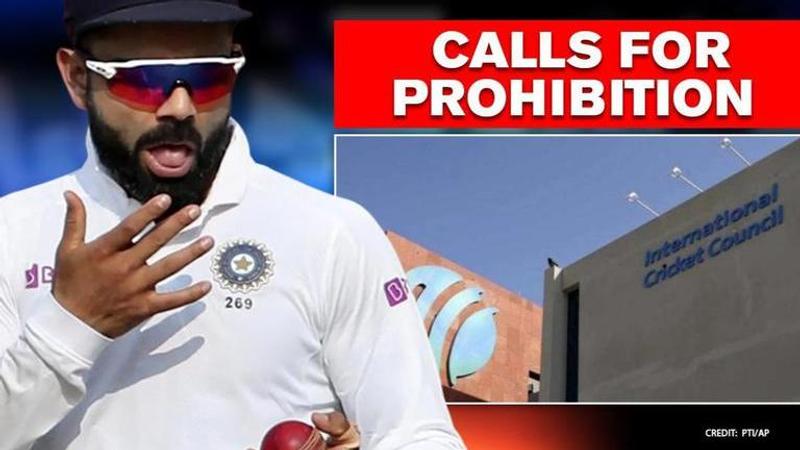Published 21:16 IST, May 19th 2020
Kumble-led ICC committee recommends ban on saliva amid threat of COVID transmission
Anil Kumble-led ICC committee has recommended banning the practice of using saliva to shine the ball, owing to the COVID-19 pandemic

Cricket is set to do away with one of its oldest practices — the use of saliva to shine the ball — as an Anil Kumble-led ICC committee on Monday recommended banning it owing to the COVID-19 pandemic. However, the ICC Cricket Committee saw no health hazard in continuing with the use of sweat.
During a meeting over a video conference, the committee also pushed for bringing back two non-neutral umpires (both from the host nation) for all international matches, as DRS ensures more accurate decision making. This was also recommended to curb travel.
In line with its proposal, the committee has recommended an increase in the use of DRS review per innings, from two to three.
"We are living through extraordinary times and the recommendations the Committee have made today are interim measures to enable us to safely resume cricket in a way that preserves the essence of our game while protecting everyone involved," Kumble said in an ICC release.
"The ICC Cricket Committee heard from the Chair of the ICC Medical Advisory Committee Dr Peter Harcourt regarding the elevated risk of the transmission of the virus through saliva, and unanimously agreed to recommend that the use of saliva to polish the ball be prohibited," the apex body said in the release.
However, the bowlers can continue using sweat to shine the ball as it's not a virus transmitter.
"The Committee also noted the medical advice that it is highly unlikely that the virus can be transmitted through sweat.... (It) saw no need to prohibit the use of sweat to polish the ball while recommending that enhanced hygiene measures are implemented on and around the playing field."
The use of saliva to shine the cricket ball, especially in the red-ball format, is primarily meant for swing bowling but the practice is now being seen as a health risk in a world battling the pandemic.
As the ICC last month contemplated banning the use of saliva as a safety measure in what is expected to be a very different world going ahead, it has thrown the floor open for a fierce debate in the cricket community.
Only time will tell how much of an imbalance between the bat and ball will the whole thing cause, but fast bowling greats such as Michael Holding and Waqar Younis have already expressed their aversion to the idea.
Another notable point discussed in the meeting was the re-introduction of two non-neutral umpires in bilateral series at least till the time-traveling becomes safer.
"Given the challenges of international travel with borders being closed, limited commercial flights and mandatory quarantine periods, the Committee recommended that local match officials be appointed in the short-term," the governing body stated in its release.
The concept of having two neutral umpires officiating in matches came in 2002. From 1994 to 2001, it involved one local and one neutral umpire. The appointments will continue to be made via the ICC from local Elite and International Panel referees and umpires.
Where there are no Elite Panel match officials in the country, the best local International Panel match officials will be appointed. This effectively means that Anil Chaudhary, Shamshuddin and Nitin Menon can officiate in Test matches at home.
In case non-neutral umpires are introduced, then teams may get an additional DRS review (currently two per innings). "The Committee also recommended that the use of technology is increased to support the appointments of a wider pool of umpires from around the world and has proposed an additional DRS review per team per innings is introduced in each format as an interim measure."
The recommendations will be put before the ICC Board for ratification.
Updated 21:16 IST, May 19th 2020




